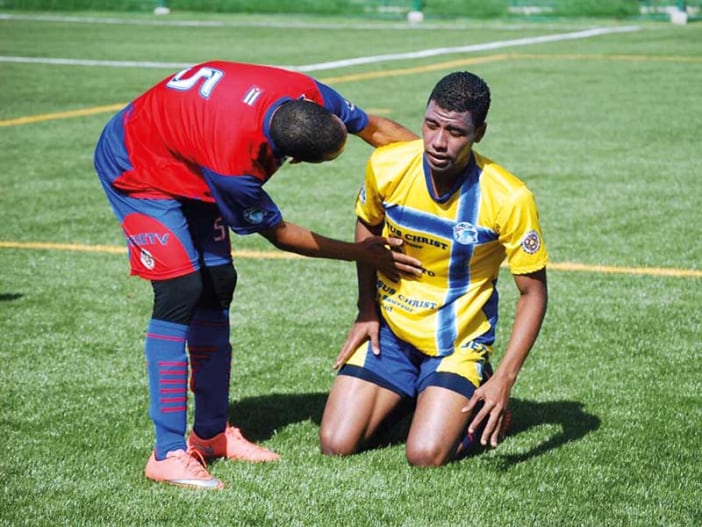Child researchers from Bhima Sangha visited parents of members and asked them their views about their children’s involvement…
Change for one boy
Ullur Manju had received training from Bhima Sangha and had travelled to the Oslo conference on Child Labour in October 1997. His father talked about the changes he had seen in Manju. As a child, his family had made him grow his hair long as an offering to a god. He was teased a lot at school because of this. He had no interest in studying at school because ‘we were taught with thrashing sticks’. He found work first as a farm worker, then on the railway.
Later he joined Bhima Sangha and his confidence grew. Through them he received vocational training in leather work and is now self employed with hopes to train others and create jobs. As a young child he would never say a word and hid whenever he was asked a question. Now he has given speeches and presentations to NGOs and children’s groups in India as well as in Oslo. His father said, ‘Manju is a much more confident boy. He has opportunities. He has seen things that I could never imagine seeing in my lifetime. My support for him is strong. It is a very good thing.’
Change for one girl
Vanaja also went to the conference in Oslo and is now a trained builder. Her mother has an injury that prevents her from working. Her father is mostly absent and spends most of his time drinking and gambling. In his absence Vanaja’s older brother makes the decisions for the family.
Vanaja’s mother commented, ‘The children can decide what they want to do. It is their decision. I support Vanaja’s work. I was surprised at first, but now I can see that it makes her happy.’ It was difficult for her to imagine that these opportunities would be available to her daughter. ‘The relatives are still not convinced, but her brother agrees that she can continue.’
Members were asked if their respect for their parents had become less as they grew in confidence and experience. In fact they felt that instead of growing less, their respect had increased. The more children understand about the social and political reasons for their families’ poverty, the more they respect their parents for their dignity and ability to cope. Children at the training centre receive the same food as they would at home and are not ashamed of their parents when they arrive at the centre in the traditional clothes of the lower castes. These are symbols of their culture and traditions of which they are proud.
Changing traditional roles
Generally, girls are not allowed to go outside their homes – their role is to fetch fuel and water and attend to domestic chores. Girls and boys are supposed to do different tasks. The intentions of parents are good but they are influenced by the society around them and find it difficult to make changes.
Bhima Sangha believes there should be equality among boys and girls in every area, including the work place. But it is difficult for children alone to create awareness. Parents and community members need to be convinced about the need for such a change. Working children’s, women’s and youth movements should all take up the responsibility of creating such an awareness among the public.
Community attitudes
A Bhima Sangha member comments, ‘Initially, in our village, the community did not have faith in Bhima Sangha. But Bhima Sangha and Makkala Panchayat campaigned for a foot bridge to be built which has been of great value for people who need to cross the river and for children to go to school. We have also applied for a postman to be based in our village. Now, community people are convinced about the good intentions of Makkala Panchayat and Bhima Sangha. Now they believe us!’
Children’s attitudes
Manju comments, ‘I have learnt to be self-reliant. I am now aware that we children have our rights. I get furious if I see anybody beating children. I am also deeply concerned about our environment.’
‘I know that through our own Sangha we can fight together if there are problems for children. I have learnt how to participate actively in processes and to encourage others to do the same. If there are more collectives and unions it is possible to bring a lot of pressure on the government to make changes for the better.’
Six representatives of Bhima Sangha contributed to this exercise and shared their comments. They are Saraswathi, Nagaraja, Vanaja, Manju, Chandrawathi and Gangadhara. All are (or have been) leaders in Bhima Sangha and worked together to produce their visual history along with other members of Bhima Sangha. Their address is c/o CWC (page 7).









